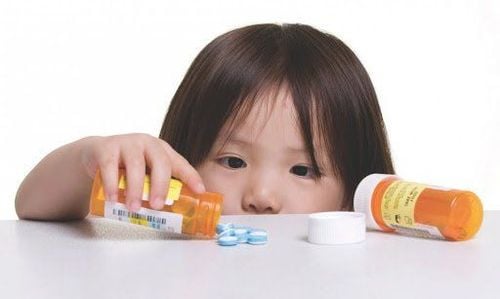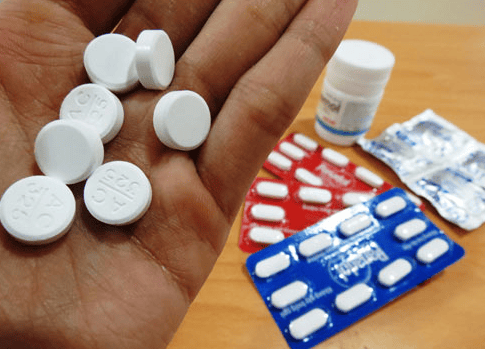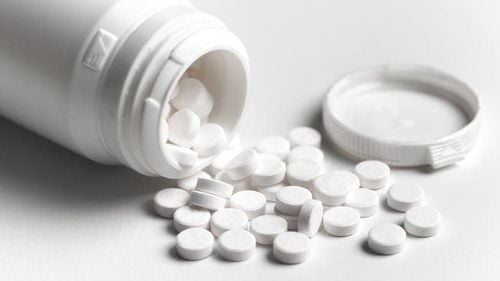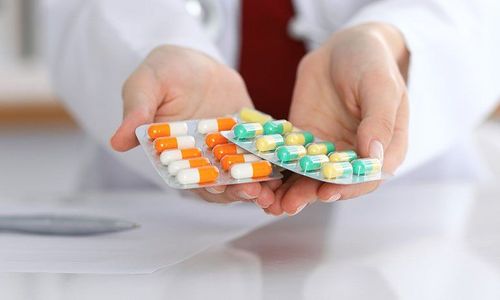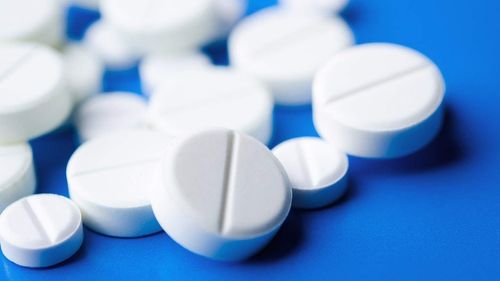This is an automatically translated article.
When you have flu symptoms, you usually take cough and cold medicine every few hours with the hope of getting better. At the end of the day, if you have a headache, think about taking a few acetaminophen tablets to control the pain. These are the wrong acetaminophen dosing habits that need to be stopped immediately.
1. How should acetaminophen be taken?
Acetaminophen is a popular medication for the relief of mild to moderate pain, usually due to headaches, muscle aches, menstrual pain, colds and sore throats, toothaches, and backaches to reduce fever. This active ingredient is also used in combination medicines, which have more than one active ingredient to treat multiple symptoms.You may not know: A total of more than 600 medicines, both prescription and over-the-counter (OTC), contain the active ingredient acetaminophen, which helps relieve pain and reduce fever. If used carefully and correctly, these medications are safe and effective. But taking too much acetaminophen can lead to serious liver damage.
2. Notes when treating colds and flu at home
The US National Institutes of Health (NIH) says that every year 1 billion Americans get colds and up to 20% of Americans get the flu. Furthermore, 7 out of 10 Americans use over-the-counter medications to treat cold, cough, and flu symptoms.According to health experts at the Food and Drug Administration (FDA), consumers are looking for ways to manage a cold or flu, yet may not know that acetaminophen is also incorporated in many medications. other to treat the same symptoms. So if you're taking more than one medicine at the same time, you're at risk of liver damage.
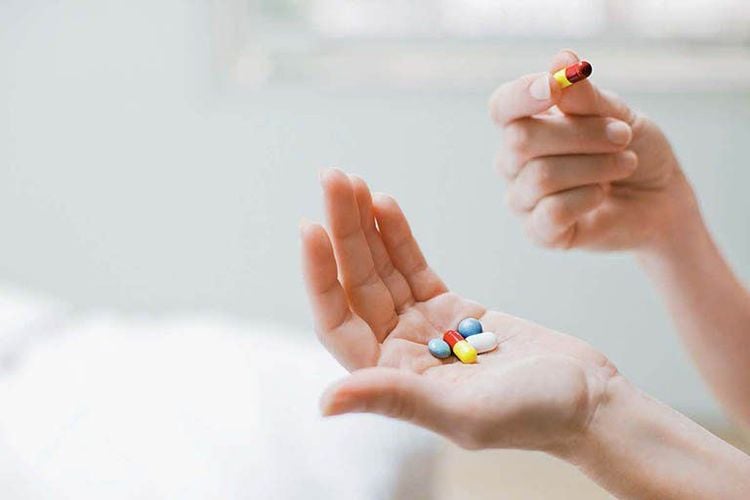
Trường hợp người bệnh dùng nhiều loại thuốc khác nhau cùng lúc có thể gây tổn thương gan
Do not take more than one OTC product that contains acetaminophen Do not take a combination of prescription drugs with an OTC product that both contains acetaminophen Do not exceed the recommended dosage on the product label. products containing acetaminophen. Check the 'Drug Information' labels of OTC cold, cough and flu products. Once you know what concentrations of acetaminophen are available, you should decide to use two or more products at the same time. If you're still not sure which one to buy, ask your pharmacist for advice.
3. Advice from medical experts
Acetaminophen is used in many medications, often prescribed in combination with pain relievers such as codeine, oxycodone, and hydrocodone. As of January 2011, the FDA has reported that 50% of acetaminophen-related liver injury cases in the United States are caused by overdoses of prescription drugs containing acetaminophen. When doctors prescribe you a medicine, ask if it contains the active ingredient acetaminophen, and tell your doctor about all other medicines (both prescription and OTC) and supplement you are using.Even if your fever or pain has not subsided, you should not take more than directed on the medicine label or packaging. You also need to be careful, because the word "acetaminophen" is not always written in full on the medicine label. Manufacturers may use acronyms such as APAP, Acetaminoph, Acetaminop, Acetamine, or Acetam.
When purchasing OTC products, you should make it a habit to tell your pharmacist what other medications and supplements you are taking and ask if it is safe to take acetaminophen supplements.

Người bệnh có thể hỏi ý kiến Dược sĩ về cách sử dụng thuốc an toàn
When giving fever-reducing medicine to your child, the "Instructions" section of the drug information label will tell you how to take acetaminophen, whether that medicine is right for your child, as well as the allowable dose. If a dosage based on your child's weight or age is not listed on the label, making it impossible for you to know the correct dose, ask your pharmacist or doctor for specific advice.
When planning to use medication containing acetaminophen, tell your healthcare professional if you have or have ever had liver disease.
Plus, acetaminophen may not mix well with alcohol. If you drink 3 or more alcoholic drinks a day, be sure to talk to a healthcare professional before using medications that contain acetaminophen.
With the above risks is the reason why we should not arbitrarily double the dose of Acetaminophen. In the process of taking the drug, the patient should consult the doctor and pharmacist. Taking medicine for the right purpose always brings the best improvement in terms of health.
Please dial HOTLINE for more information or register for an appointment HERE. Download MyVinmec app to make appointments faster and to manage your bookings easily.
Reference source: fda.gov



